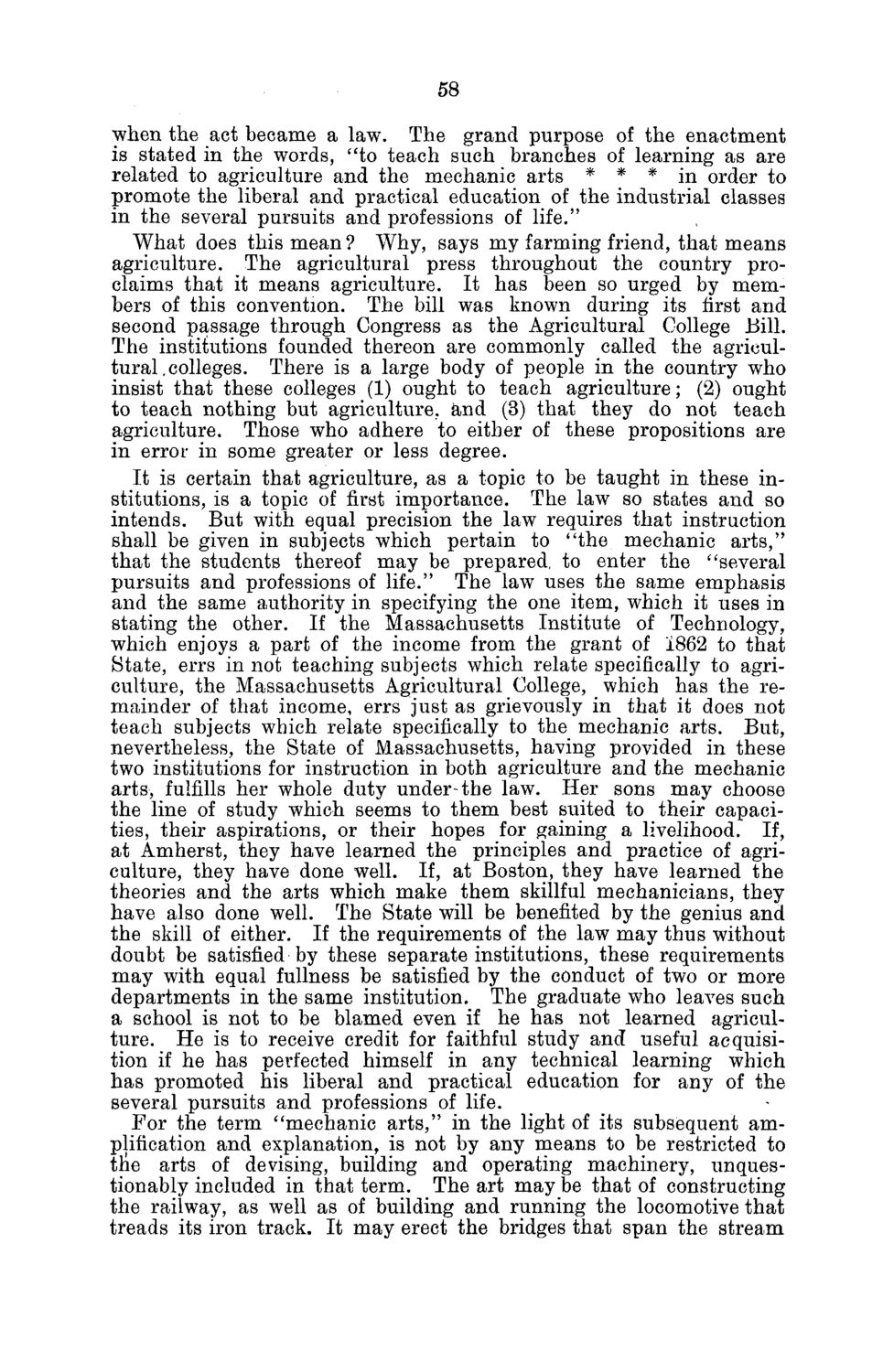| |
| |
Caption: Board of Trustees Minutes - 1882
This is a reduced-resolution page image for fast online browsing.

EXTRACTED TEXT FROM PAGE:
58 when the act became a law. The grand purpose of the enactment is stated in the words, "to teach such branches of learning as are related to agriculture and the mechanic arts * * * in order to promote the liberal and practical education of the industrial classes in the several pursuits and professions of life." What does this mean ? Why, says my farming friend, that means agriculture. The agricultural press throughout the country proclaims that it means agriculture. It has been so urged by members of this convention. The bill was known during its first and second passage through Congress as the Agricultural College Bill. The institutions founded thereon are commonly called the agricultural, colleges. There is a large body of people in the country who insist that these colleges (1) ought to teach agriculture; (2) ought to teach nothing but agriculture, &nd (3) that they do not teach agriculture. Those who adhere to either of these propositions are in error in some greater or less degree. It is certain that agriculture, as a topic to be taught in these institutions, is a topic of first importance. The law so states and so intends. But with equal precision the law requires that instruction shall be given in subjects which pertain to "the mechanic arts," that the students thereof may be prepared, to enter the "several pursuits and professions of life." The law uses the same emphasis and the same authority in specifying the one item, which it uses in stating the other. If the Massachusetts Institute of Technology, which enjoys a part of the income from the grant of 1862 to that State, errs in not teaching subjects which relate specifically to agriculture, the Massachusetts Agricultural College, which has the remainder of that income, errs just as grievously in that it does not teach subjects which relate specifically to the mechanic arts. But, nevertheless, the State of Massachusetts, having provided in these two institutions for instruction in both agriculture and the mechanic arts, fulfills her whole duty under-the law. Her sons may choose the line of study which seems to them best suited to their capacities, their aspirations, or their hopes for gaining a livelihood. If, at Amherst, they have learned the principles and practice of agriculture, they have done well. If, at Boston, they have learned the theories and the arts which make them skillful mechanicians, they have also done well. The State will be benefited by the genius and the skill of either. If the requirements of the law may thus without doubt be satisfied by these separate institutions, these requirements may with equal fullness be satisfied by the conduct of two or more departments in the same institution. The graduate who leaves such a school is not to be blamed even if he has not learned agriculture. He is to receive credit for faithful study and useful acquisition if he has perfected himself in any technical learning which has promoted his liberal and practical education for any of the several pursuits and professions of life. For the term "mechanic arts," in the light of its subsequent amplification and explanation, is not by any means to be restricted to tlie arts of devising, building and operating machinery, unquestionably included in that term. The art may be that of constructing the railway, as well as of building and running the locomotive that treads its iron track. It may erect the bridges that span the stream
| |